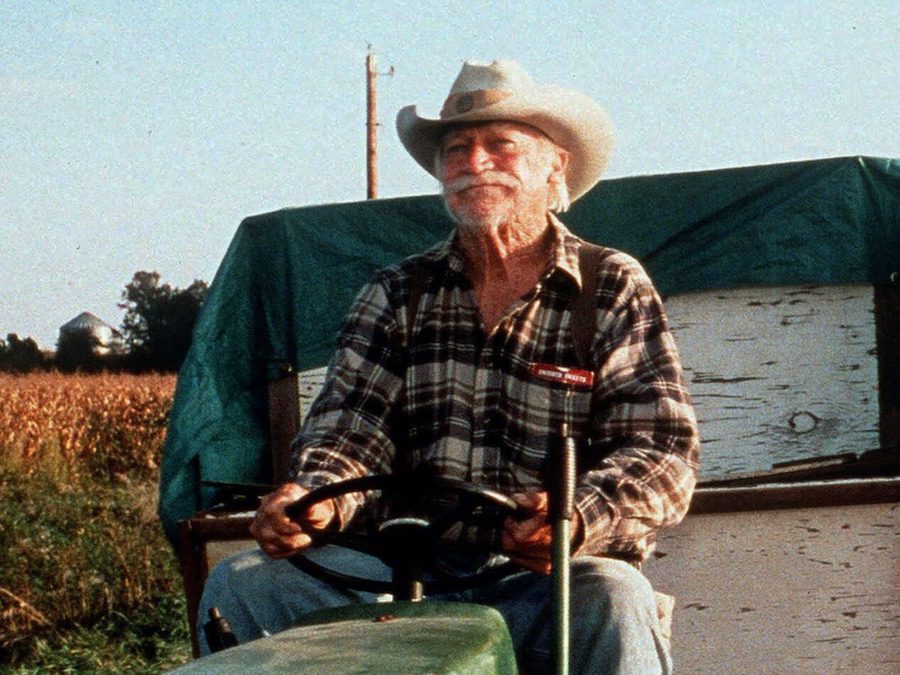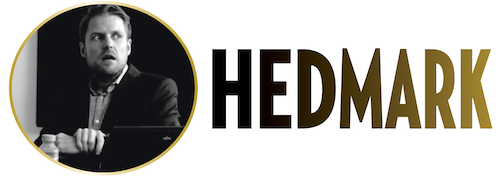
IN LIFE, WHAT ARE THE THINGS THAT REALLY MATTER?

I remember this film coming out at a time when you certainly didn’t expect David Lynch to do something so… traditional. After all, his entire 1990s had been devoted to Wild at Heart, the TV hit Twin Peaks and its cinematic prequel, and then Lost Highway. Anything but a conventional diet. It’s easy to forget that Lynch’s wide breakthrough came in the shape of a more traditionally narrated, moving film, The Elephant Man (1980). The Straight Story was a return to that style and it’s not something that comes easily to Lynch. He once told Empire Magazine that this is his most experimental film.
Lying on the floor
Alvin Straight (Richard Farnsworth), 73, is found lying on the floor. His neighbors want to call an ambulance, but he tells them not to be silly. It’s clear that something did happen though, and Alvin’s daughter Rose (Sissy Spacek) takes him to the doctor. In no uncertain terms, his physician tells him that if he doesn’t make a few serious changes, he will not have many more years left.
Rose takes Alvin home, but it isn’t until they learn that Alvin’s brother Lyle (Harry Dean Stanton) has suffered a stroke that Alvin decides to do something drastic. The brothers haven’t talked for many years, and they live far apart, but Alvin wants to see Lyle before it’s too late. He doesn’t have a license, so he’s going to drive all the way from Iowa to Wisconsin on his lawnmower.
Writing the script with a childhood friend
This was based on a real story, where the actual Alvin Straight rode 300 miles on that lawnmower. Lynch’s frequent collaborator Mary Sweeney read about it in The New York Times and connected with this portrait of the American Midwest and the people who live there. The rights to the story had already been secured by another producer, but when he died in 1996, Sweeney made sure to get her hands on it. She wrote the story together with a childhood friend, John Roach, and Lynch found something he liked in it. Even though most of his movies are out there, they’re also firmly grounded in something genuinely American, rural places with diners, bad coffee and people who were born and raised there.
Richard Farnsworth brings tremendous warmth to his character
I’m not sure what about this film that Lynch found so experimental, but maybe it was because of his decision to shoot the story in chronological order; in other words, we’re getting to know Alvin Straight and follow his journey in the same way as the filmmakers. Lynch found the perfect actor to play Straight. When Richard Farnsworth, who had a long career behind him, was offered the part, he wasn’t so sure this was a good idea. After all, he was dying, suffering from cancer that was spreading throughout his body. But he ultimately agreed to what became his most famous role, earning him an Oscar nomination before he finally took his own life in October, 2000, unable to stand the pain anymore. The problem he had with his legs was worked into the story and Farnsworth brings tremendous warmth to his character that fits this film like a glove.
Lynch paints a moving portrait of middle America that feels personal and authentic (he was born in Montana, Sweeney in Wisconsin). The only thing that feels perhaps a tad mannered is Spacek as Rose who has a mental disability and speaks in a staccato rhythm.
This is one of the director’s most slow-moving, quiet and gripping films, full of irresistibly charming, poignant and friendly encounters. There’s also a dry sense of humor and a perfectly melancholy music score by Angelo Badalamenti.
The Straight Story 1999-U.S.-U.K.-France. 112 min. Color. Directed by David Lynch. Screenplay: John Roach, Mary Sweeney. Cinematography: Freddie Francis. Music: Angelo Badalamenti. Cast: Richard Farnsworth (Alvin Straight), Sissy Spacek (Rose Straight), Harry Dean Stanton (Lyle Straight), Everett McGill, John Farley, Kevin Farley.
Trivia: At one point, Paul Newman was considered for the lead role.
Last word: “I didn’t audition, I didn’t even know David Lynch till the week before I started the film. My agent called me saying David Lynch wanted to talk about a project and I said, ‘Who’s David Lynch?’ and he said he did The Elephant Man, which I enjoyed. I told David about my cane, he said, ‘I think we can fix you up.’ I said, ‘that’s great, let’s go’, so that was it.” (Farnsworth, BBC)
